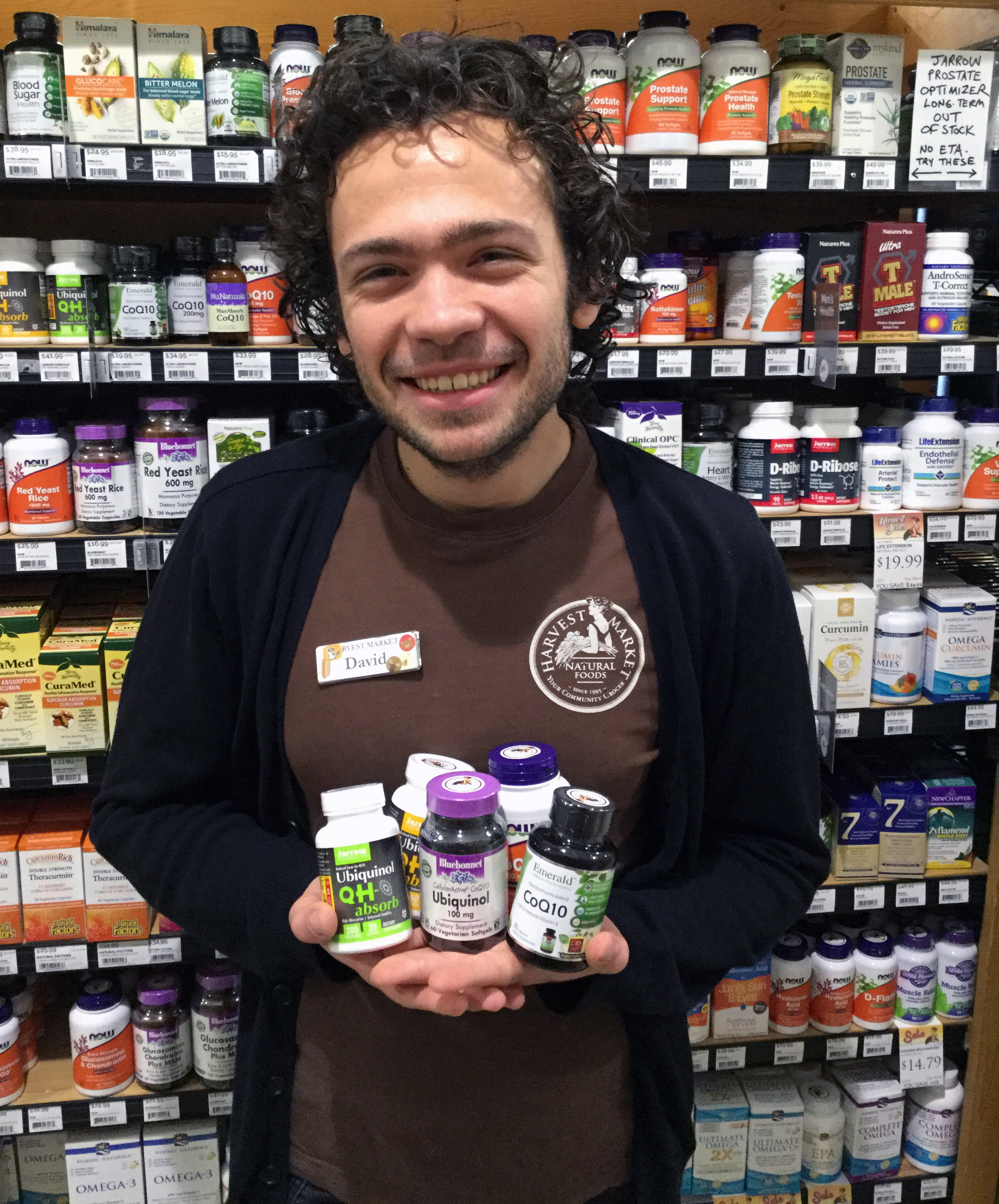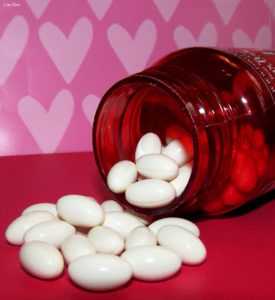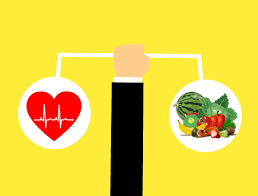
We are creatures of the heart. We all come equipped with an organ inside of us that not only pumps blood, oxygen, and nourishment throughout the body, but is also the beacon of love and compassion that we carry within us on a daily basis. Without our heart, we wouldn’t be able to live, so it’s important that we nurture this little loving child inside of us.
 There are a number of ways you can take care of your heart. One of the many arrows in the quiver is supplementing. There’s a particular supplement that is great for heart health, and it’s called CoQ10, also known as CoenzymeQ10 or Ubiquinone. Coq10 is a naturally occurring antioxidant that is required by the cells in your body in order to function properly; it increases absorption of nutrients, it helps convert fats into usable energy inside the cell (1), and it helps regulate blood pressure (2). All three of these are essential for healthy heart function because the more energy and nourishment the heart has, the more adequately it can perform, and the more regulated our blood pressure is, the more consistently the heart can pump these essential nutrients throughout the body.
There are a number of ways you can take care of your heart. One of the many arrows in the quiver is supplementing. There’s a particular supplement that is great for heart health, and it’s called CoQ10, also known as CoenzymeQ10 or Ubiquinone. Coq10 is a naturally occurring antioxidant that is required by the cells in your body in order to function properly; it increases absorption of nutrients, it helps convert fats into usable energy inside the cell (1), and it helps regulate blood pressure (2). All three of these are essential for healthy heart function because the more energy and nourishment the heart has, the more adequately it can perform, and the more regulated our blood pressure is, the more consistently the heart can pump these essential nutrients throughout the body.
Why do we need to supplement something that occurs naturally? Well, over time, the production of CoQ10 decreases due to oxidative stress and DNA damage. As we get older, our bodies produce less CoQ10, thus contributing to unwanted issues like heart disease, cancer, and a decline in cognition (3). And if we want to keep our heart healthy, as well as the rest of our body, it is important that we maintain adequate levels of this essential enzyme.
Now, if you come into our wellness aisle, you will see a couple of different kinds of CoQ10. Some will be the regular “CoenzymeQ10,” some will be labeled as “Ubiquinone,” and still others will be called “Ubiquinol.” Ubiquinol is the active form of CoQ10. When CoQ10 is either made in the body, or taken exogenously, it is often converted into its active form and is used to increase cellular energy. But the reason both versions are available is that as we age, our body’s ability to convert CoQ10 into Ubiquinol decreases. So, if you’re under the age of 30, you can most likely supplement CoQ10 and it will get converted in your body just fine. However, as you pass the age of 30, your body has a harder time converting it, which is why Ubiquinol is the more effective choice (4) (5). Almost all of the CoQ10/Ubiquinone and Ubiquinol we carry falls in the range of 50mg-400mg. Anything in that range is a good place to start. A good rule of thumb is to start small and work your way up, according to how you feel after a few weeks of taking it, but 100mg is the most common amount people tend to start with.
 Supplementing isn’t the only way to acquire this enzyme, though – you can actually get it through food, too. Any type of grass-fed meat or pastured poultry is a good source, as well as wild caught fish and pastured eggs. If you’re not a fan of foods from animals, you can get CoQ10 through broccoli, cauliflower, pistachio nuts, and sesame seeds, as well as a variety of other legumes and whole-grains (1). And if you really want to hit a power move with CoQ10, you can eat the higher-fat CoQ10-rich foods, along with supplementing it. This is especially great because CoQ10 is fat-soluble, so you will be getting CoQ10 through the food you’re eating, as well as increasing the bioavailability of the supplement that you’re taking. It’s a double whammy.
Supplementing isn’t the only way to acquire this enzyme, though – you can actually get it through food, too. Any type of grass-fed meat or pastured poultry is a good source, as well as wild caught fish and pastured eggs. If you’re not a fan of foods from animals, you can get CoQ10 through broccoli, cauliflower, pistachio nuts, and sesame seeds, as well as a variety of other legumes and whole-grains (1). And if you really want to hit a power move with CoQ10, you can eat the higher-fat CoQ10-rich foods, along with supplementing it. This is especially great because CoQ10 is fat-soluble, so you will be getting CoQ10 through the food you’re eating, as well as increasing the bioavailability of the supplement that you’re taking. It’s a double whammy.
An additional piece of information to discuss is CoQ10’s relationship with statin drugs. If you’re unfamiliar with statin drugs, they are drugs prescribed to lower the lipid count in your bloodstream, or more specifically, lower your cholesterol. People take them because some doctors believe that a person’s high cholesterol could contribute to cardiovascular disease and a decline in heart function. One of the many downfalls of statin drugs is that they come packed with harmful side effects. Statins have been shown to lower the body’s production of CoQ10, which is why it is important to supplement with CoQ10/Ubiquinol when taking statins (1). Also, important to note, a common side effect of statins is muscle-related pain, especially in the extremities, which could be caused by the statins inhibiting the production of CoQ10. Keep in mind, CoQ10 benefits the body in a lot of similar ways that statins do (regulating blood pressure, possibly decreasing the risk of heart disease, and aiding in the conversion of lipids to usable energy) (6). So, if you’re taking statin drugs, it might be worthwhile to supplement CoQ10 to give them a little boost in efficiency and help aid some of the unwanted side effects.
As said before, there are a number of ways to keep your heart healthy, but it is important to have as many tools as possible at your disposal. CoQ10/Ubiquinol is a great way to keep your heart pumping with a fervor that exerts little energy and little time. From being a fat-soluble antioxidant, aiding in the conversion of food into energy, and regulating blood flow, this supplement is a great pick-me-up for the heart. And because it is the month of Heart Health, it is vital to keep your heart pumping at an optimal level!
-David, Front End/Customer Service Staff Member
(Two editorial cents from Henry, the Wellness Manager: “Statins are over-prescribed and can be dangerous to your health. We have been Big Pharma’s Guinea pigs for decades. If you are concerned about your “high” LDL cholesterol numbers, or if your doctor has hinted that statins may be where you’re heading, I highly recommend reading “The Great Cholesterol Myth” by Dr. Stephen Sinatra”).
References:
1. https://draxe.com/all-about-coq10/
2. https://www.lifeextension.com/Magazine/2010/3/Reduce-Blood-Pressure-Naturally/Page-01
3. https://www.ncbi.nlm.nih.gov/pubmed/24389208
4. https://ubiquinol.org/faqs
5. https://articles.mercola.com/sites/articles/archive/2016/06/26/coq10-ubiquinol-benefits.aspx
6. https://www.ncbi.nlm.nih.gov/pubmed/17493470
